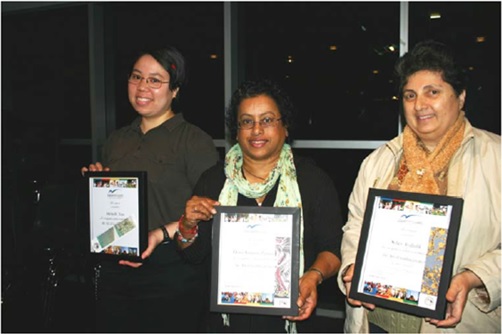Tony Hollis: Performers’ rights to payment and royalties


Tony is a musician and lead singer of rock band Phi Lumens based in Queensland http://www.facebook.com/PhiLumens. He also works as a freelance artist recording jingles for advertisements and is the video production manager for Gold Coast Multimedia Pty Ltd.
In 2007, he recorded some voice work for a radio advertisement jingle. He did not sign a contract but there was a verbal agreement that he would be paid $80.00, which was received. The advertisement went on to receive good exposure and air time on radio.
Later, Tony realised that he had been paid at a rate below the industry standard. He contacted Arts Law to find out what his rights were in relation to obtaining further payment to meet industry standards, and also to find out whether he was entitled to any royalty payments from the advertisement.
Arts Law put Tony in touch with Melanie Bouton, Executive Counsel at Herbert Smith Freehills specializing in intellectual property law.
Melanie advised Tony about general performers’ rights in relation to sound recordings and performers’ moral rights. She advised that there was unlikely to be any breach in relation to these general rights. Even though the agreement was verbal, it was clear that Tony had consented to the recording being made. His voice work had not been treated in a derogatory way and it was standard practice not to name the performer in a radio commercial.
Melanie also explained that in this case copyright in the recording was owned by the person or company who commissioned the advertisement. Tony had no copyright in the recording or the music (he did not compose it or write the lyrics) and therefore was not entitled to any copyright royalty payments for the ongoing use (such as the repeated broadcasting on radio) of his performance on the recorded jingle.
However, while Tony was not entitled to royalties for his voice work, it seemed that Tony might well have been paid less than the minimum employment entitlements under industry standards. Melanie suggested Tony contact the company that commissioned the advertisement with this information in order to pursue his entitlement. Importantly, Tony now knows what he can charge for this type of work in the future and says “If you’re not sure what your rights are, make sure that you find out what they are”.
Tony’s experience highlights the importance of having a contractual agreement in writing before services are engaged, especially for the purposes of clearing up any uncertainty about payment. Performers should check minimum employment entitlements to ensure they are not being underpaid. Musical performers are encouraged to contact the Musicians Union of Australiaand the Media , Entertainment & Arts Allianceto check they are receiving appropriate payment entitlements. Information on entitlements is also available on the Fair Work Australia website.




